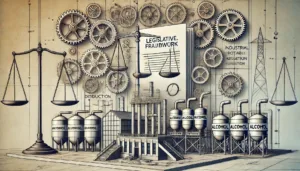Facts:
On June 2, 2009, seven-year-old Baby Sakshi Greola was walking with her mother and brother on a zebra crossing in Delhi when a high-speed car hit her, causing grievous injuries. A claim petition was filed under Section 166 of the Motor Vehicles Act, 1988. The Motor Accident Claims Tribunal (Tribunal) initially awarded ₹5,90,750 as compensation. Upon appeal, the Delhi High Court increased the compensation by ₹5,60,000, bringing the total to ₹11,51,000. Dissatisfied, the appellant approached the Supreme Court seeking further enhancement.
Contentions of the Appellant:
The appellant argued that her severe injuries, resulting in 75% permanent disability due to moderate mental retardation, necessitate increased compensation. She highlighted her inability to lead a normal life, loss of marriage prospects, and the need for lifelong care. Relying on precedents like Kajal v. Jagdish Chand and Master Ayush v. Reliance General Insurance Co., she emphasized the inadequacy of the compensation awarded under various heads, including pain and suffering, attendant charges, and future medical expenses.
Contentions of the Respondent:
The insurance company contended that the High Court had already been liberal in enhancing the compensation. Citing the disability certificate, the respondent argued that there was a likelihood of improvement in the appellant’s condition and opposed further enhancement of the awarded amount.
Issues:
- Whether the compensation awarded by the High Court was just and adequate given the severity of the appellant’s injuries.
- Whether the appellant’s 75% disability justified enhanced compensation for loss of earning capacity, pain, suffering, and future expenses.
- Whether the compensation awarded for attendant charges and loss of marriage prospects was sufficient.
Observations/Findings by the Supreme Court:
The Supreme Court noted that the appellant’s 75% disability effectively rendered her incapable of leading a normal life, necessitating lifelong care. The Court rejected the High Court’s assumption that only a part-time unskilled attendant was needed and emphasized the requirement of a full-time skilled caregiver. It also acknowledged the appellant’s inability to experience the joys of childhood, adulthood, or marital companionship.
The Court enhanced the compensation significantly under various heads, including loss of earning capacity, pain and suffering, attendant charges, and loss of marriage prospects. It observed that compensation in personal injury cases should be liberal and ensure justice to the victim.
Principle of the Case:
The assessment of compensation in personal injury cases must consider the lifelong impact of the disability, ensuring adequate compensation for pecuniary and non-pecuniary losses. A liberal approach is essential in cases involving children or individuals with severe disabilities.
Final Order:
The Supreme Court enhanced the compensation to ₹50,87,000, including ₹15,00,000 for pain and suffering, ₹13,18,000 for loss of earning capacity, and ₹9,42,000 for attendant charges. The Court maintained the 9% interest rate and directed the insurance company to comply within eight weeks. Additionally, it mandated investment of part of the compensation in fixed deposits for the appellant’s future needs.
Impact on Public Law and Order:
This judgment reaffirms the judiciary’s commitment to providing just compensation in motor accident cases. By ensuring that victims with severe disabilities receive adequate financial support for their lifelong needs, it sets a precedent for equitable and compassionate adjudication. This strengthens public trust in legal mechanisms and deters negligence on roads.
Case Citation:
Supreme Court of India, Baby Sakshi Greola v. Manzoor Ahmad Simon & Anr., Civil Appeal No. __ of 2024 (Arising out of SLP(C) No.10996 of 2018), Decided on December 11, 2024.








